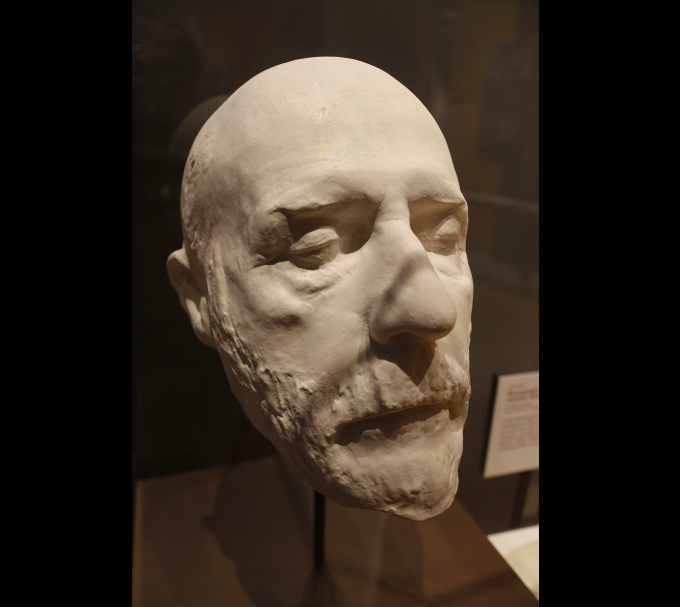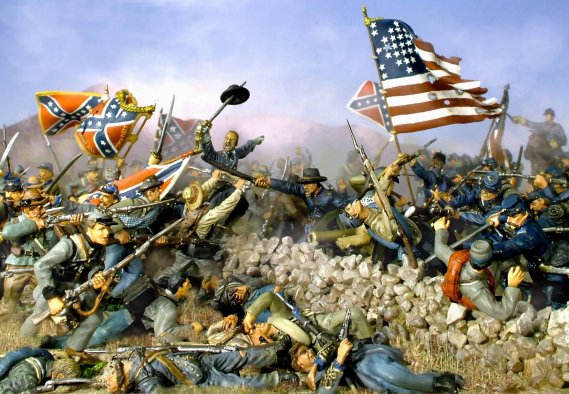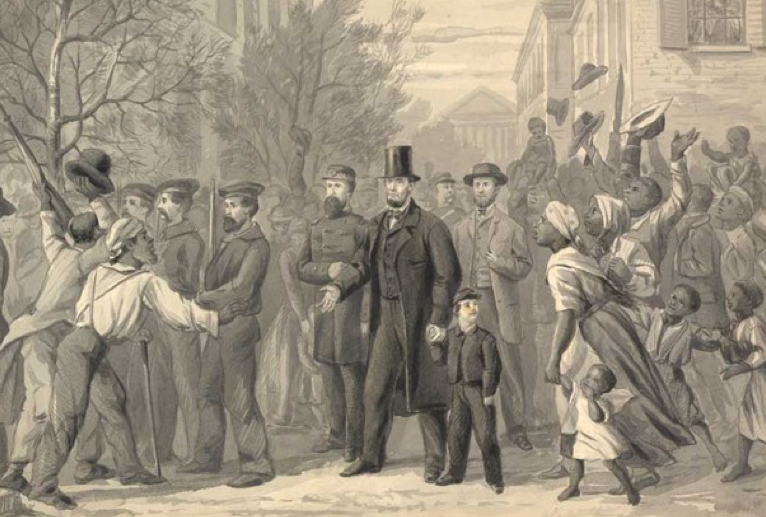
By Matt Rooney
_
One thing at the onset of our discussion:
I’ve never had much sympathy for Confederate nostalgia (especially the rebel flag).
–
They lost the war. A terrible war which they started and that’s legacy, even long after the carnage ended, continues to haunt the United States through the present day. At a more fundamental level? We don’t reward losers. That’s not how war works. That’s not how history works.
Still, only the grossly historically ignorant and bad faith actors among us fail to recognize that the history is complicated. The war was complicated. Robert E. Lee remains complicated.
After the surrender at Appomattox, it was Ulysses Grant himself who wrote that he was “depressed at the defeat of a foe who had fought so valiantly [for] the worst cause for which anyone ever fought.”
 Grant wasn’t a butcher as some contemporary journalists claimed. He didn’t write those words because he missed battle. The man whose surrender he had accepted at Appomattox was the commanding general of the Army of Northern Virginia and the Old South’s most enduring military hero. An opponent who had brought the United States to its knees and, on a few instances, close to a defeat.
Grant wasn’t a butcher as some contemporary journalists claimed. He didn’t write those words because he missed battle. The man whose surrender he had accepted at Appomattox was the commanding general of the Army of Northern Virginia and the Old South’s most enduring military hero. An opponent who had brought the United States to its knees and, on a few instances, close to a defeat.
Lee the legend’s remaining monuments are unsurpisingly at the epicenter of the current political malestrom. Nancy Pelosi bragged this week about having previously relegated Lee’s statue to the crypt of the U.S. Capitol. Not unlile the times in which we live, Lee the man was a bundle of contradictions that find their reflection in our history.
Yes, he committed treason. He left the Union along with his state (Virginia) out of loyalty to Virginia. Before the war, he was the Union’s most promising general; he was offered command of the Union forces before defecting to the Confederacy. He spent four years helping tear apart the country he had grown up in and served in the Mexican American War. Lee nevertheless had a reputation as personally kind, not malicious, and who referred to the Union as “those people” rather than as the enemy. When the war ended, his firm oppositon to calls for a continued Southern guerilla campaign helped avoid a continuation of the bloodshed. At the very least, it bought the Union sufficient time to consolidate its hold on the Reconstruction-era postbellum South.
Retired from the battle arena, Lee actually sought the restoration of his U.S. citizenship but never achieved it in his liftime (Secretary of State William H. Seward gave his application letter away to a friend as a momento of the war); in fact, he wasn’t restored as a citizen of the United States until the Ford Administration.
Even Lee’s views on slavery were complex.
Yes, he was a racist. Except for the most ardent abolitionists, most Americans North and South were racists in the 1860s particularly by today’s evolved standards. That doesn’t make it right; it just means it’s fact with which we must grapple. I’d imagine very few Americans know that Abraham Lincoln – the future Great Emancipator – originally advocated for the reconolization of American slaves in Africa.
Lee’s frustraingly contradictory internal moral conflict over slavery might be best depicted by a passage from a 1856 (five years befor the war) letter to his wife:
“In this enlightened age, there are few I believe, but what will acknowledge, that slavery as an institution, is a moral & political evil in any Country. It is useless to expatiate on its disadvantages. I think it however a greater evil to the white than to the black race, & while my feelings are strongly enlisted in behalf of the latter, my sympathies are more strong for the former. The blacks are immeasurably better off here than in Africa, morally, socially & physically. The painful discipline they are undergoing, is necessary for their instruction as a race, & I hope will prepare & lead them to better things. How long their subjugation may be necessary is known & ordered by a wise Merciful Providence.”
Anti-slavery. Also disturbingly racist. Like Lincoln?
At the fourth Lincoln-Douglas debate on September 18, 1858, two years after Lee’s letter to his wife, the guy who liberated slaves would later adoringly refer to as “Father Abraham” explained to an Illinois crowd that “I am not, nor ever have been, in favor of bringing about in any way the social and political equality of the white and black races,” noting his opposition to blacks voting, jury service, office holding and even interracial marriage.
 No, I certainly don’t think Lee deserves to be celebrated or honored like Lincoln. Lee may have regretted his decision to bolt the Confederacy. We’ll never know. He will always be best known for his biggest mistake, and that’s a just outcome. His worse decision is a burden his legacy cannot and should not escape.
No, I certainly don’t think Lee deserves to be celebrated or honored like Lincoln. Lee may have regretted his decision to bolt the Confederacy. We’ll never know. He will always be best known for his biggest mistake, and that’s a just outcome. His worse decision is a burden his legacy cannot and should not escape.
Lincoln ultimately went on to save the Union, emancipate the slaves, and achieve the 13th Amendment’s passage. Lincoln’s views evolved and, through his actions during his time in office, he helped America envolve. Forever afterward? It was the United State “is,” not “are.” Whatever good that’s come since in the 20th and 21st centuries would’ve been possible without our nation passing through that catestrophe of the 19th century.
I recognize that many black Americans might see a statue of Robert E. Lee and feel contempt or evenrage. That’s understandable because it’s natural and yes, it’s appropriate. No one should invalidate those feelings.
Thankfully, most of the people who see these statues as some sort of remembrance of a glorious “lost cause” are also long gone.
What do I see? When I look at Lee specifically? A monument not to a saint or a demon but rather America’s great becoming. Not “the marble man” but one whose wear and fissures are on full display for anyone willing to look without an agenda. A deeply flawed American-turned-rebel-turn-American again who did evil things not in a vaccum in history (like a Hitler) or for pleasure (like a Ted Bundy) but in the context of an inflection point in our national story when the United States was at the threshold of becoming a more perfect union. Our country changed. We changed.
Keep in mind: the statue-smashers and their sympathetic policitians (like Speaker Pelosi) aren’t proposing we rename Confederate-named forts and streets after Union generals or replace Stonewall Jackson statues with William Tecumseh Sherman statues. If they were? I might be sympathetic or even, in some case, outright supportive. In actuality, they’re trying to shove a critically-important-to-understand yet oft-misunderstood aspect of our history in the trash can… or at least the basement of the Capitol building. You can’t write a new history that fits your narrative until the old history, both the good and the bad, is safely out of circulation.
That’s problematic. You don’t have to revere General Lee – I certainly don’t – to see why.
_
Save Jersey’s Founder and Blogger-in-Chief, MATT ROONEY is a nationally-noted and respected New Jersey political commentator. When he’s not on-line, radio or television advocating for conservative reform and challenging N.J. power-brokers, Matt is a practicing attorney at the law firm of DeMichele & DeMichele in Haddon Heights (Camden County).
–


